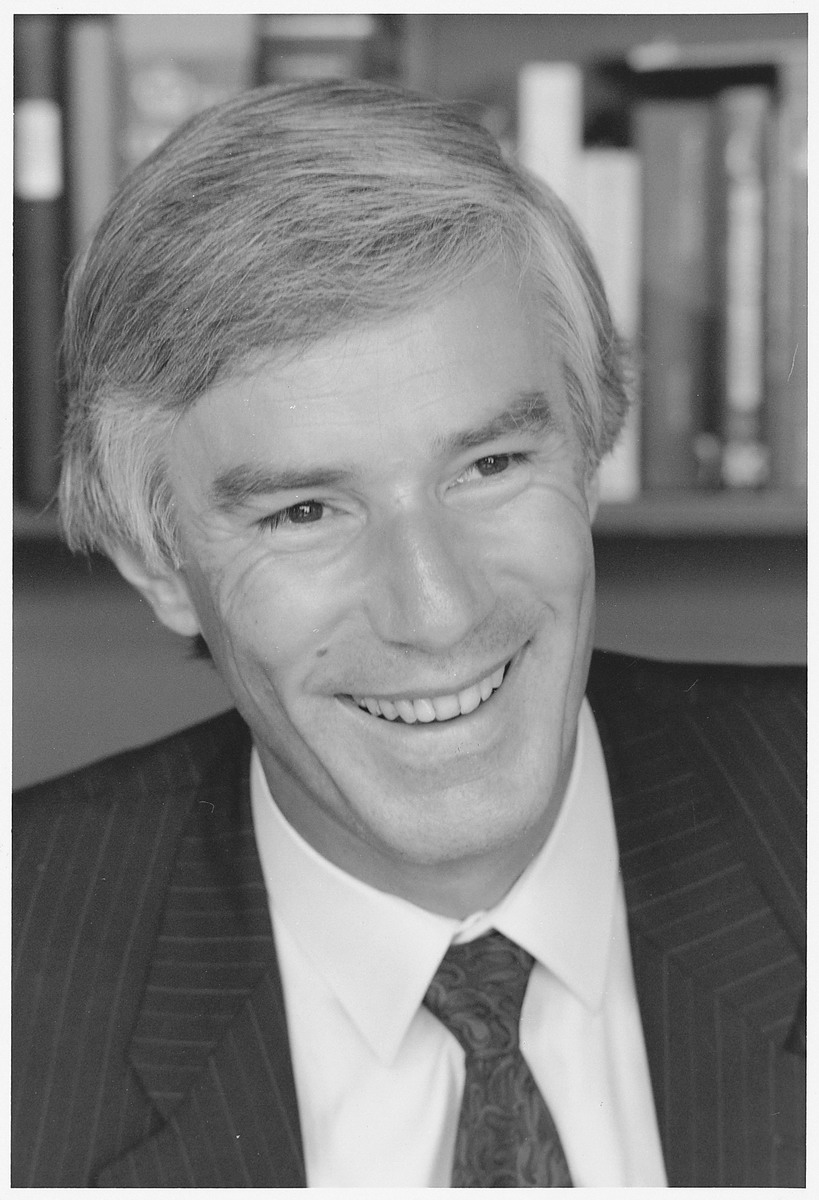Dean of the University of Chicago Law School: 1979-1987
Deanship
Gerhard Casper’s eight-year tenure as dean was one of great progress for the Law School. Most notably, he oversaw a massive capital campaign for the Law School. At the time, tuition covered about half of operating expenses, and the proportion covered by endowment was declining. Chicago’s peer law schools possessed endowments between two and five times as large. The capital campaign provided new funds for endowed professorships and financial aid, as well the expansion of the Law School’s physical complex.
The physical expansion marked the first major investment in Law School facilities since moving to the Laird Bell Quadrangle in 1959. The extension of the library building by 45 feet to the south increased its size by more than half. In addition to new rooms for computers, microfilm and microfiche, reference materials, and faculty and administrative offices, the library’s bookstack capacity doubled (with nearly 1900 new bookstack sections) and the Louis H. Silver Special Collections Room’s capacity for rare books quadrupled. Dino D’Angelo JD ’44, an attorney, real estate owner, patron of the arts, and philanthropist, donated $4.5 million for the library improvements. The library was renamed the D’Angelo Law Library at its dedication on June 12, 1987. [See photographs of the D’Angelo Law Library dedication ceremony in the Casper photo gallery!]
Casper appointed Judith Wright as the director of the law library in 1980. She went on to lead what would become the D’Angelo Law Library until her retirement in 2013, overseeing the library’s incorporation of digital materials and electronic resources, along with two major renovations to the physical complex. A leader among law librarians in the country, she helped ensure that D’Angelo remained at the forefront of legal research while responding nimbly to the changing technological landscape.
Casper helped bring many legal scholars to the faculty who went on to become leaders in their fields as well as indelible parts of the UChicago Law experience for many years to come. They included future Law School deans Douglas G. Baird and Daniel Fischel; criminal law expert Albert W. Alschuler; legal historians R.H. Helmholz and Dennis J. Hutchinson; Mark J. Heyrman; Joseph Isenbergh; employment discrimination expert Randall D. Schmidt; constitutional law scholar David A. Strauss; and Cass R. Sunstein.
Casper’s hires also led to a more diverse faculty for the Law School. In 1979, Casper hired Lea Brilmayer as an assistant professor. A specialist in contract law and conflicts in law, she was only the second woman ever to join the Law School faculty (the first, Soia Mentschikoff, had left the faculty five years earlier). In 1981, Casper oversaw the faculty appointments of Diane Wood, a future judge on the U.S. Court of Appeals for the Seventh Circuit; Edna Epstein; Linda Deacon; and George Leighton, a civil rights attorney and state and federal judge in Illinois.
An international highlight of Casper’s deanship came on October 23, 1986, when West German Chancellor Helmut Kohl visited the Law School. Kohl participated in a panel discussion with Casper and Lloyd Rudolph, the Chair of the Committee on International Relations. Casper introduced Kohl in German, recounting the German influences on the creation of the University of Chicago Law School. Kohl fielded questions from students on a variety of domestic and foreign policy issues.
Casper was a leader among law school faculty nationally, but maintained his focus on the academic priorities of legal education. (“A superb administrator, he is nevertheless, first and foremost, dedicated to scholarly values,” his colleagues attested.) He was known as “one of the few courageous voices” within the American Bar Association and the Association of American Law Schools who decried the “homogenizing and stultifying regulation” that was growing more common among American law schools. [“The Casper Deanship,” 7] Casper sought to guide the Law School based on its unique needs and goals, rather than according to “the reigning opinions of the day.” [“The Casper Deanship,” 7]


